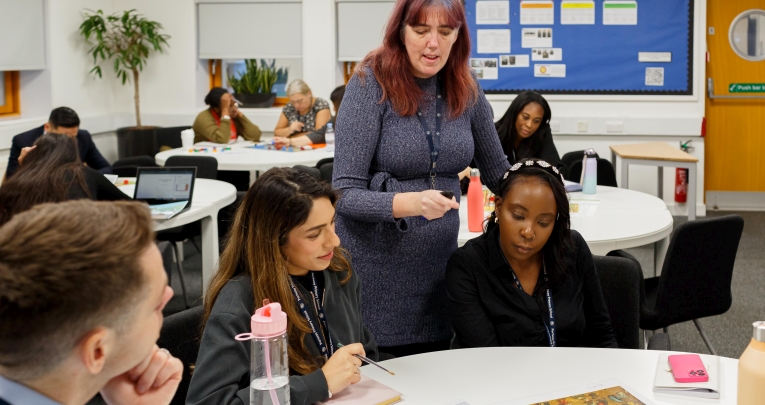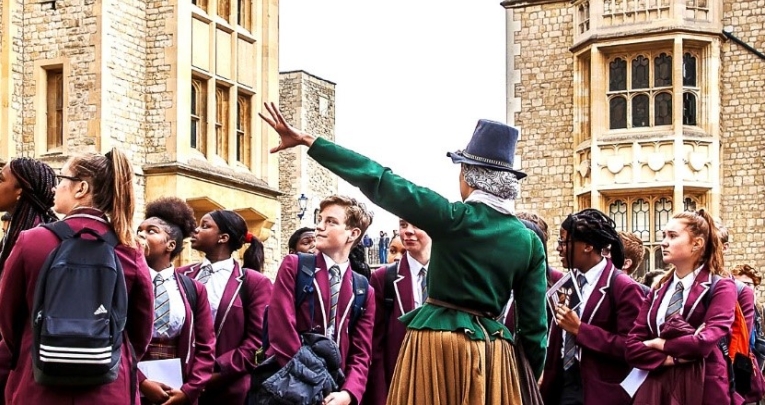A new Fourth Edition of this stimulating and creative three-book series…
Aaron Wilkes is a full-time head of history, and a talented writer. He knows how to relate content, questions and ideas, and his books ooze 100% engagement.
New editions of his bestselling KS3 history course are now available and they don’t disappoint.
I’ve been taking a look at Invasion, Plague and Murder, covering the remarkable period of British history that is 1066-1558.
Each chapter offers solid coverage, and what students need to know is told using an informal and narrative-rich approach that really flows.
Moreover, the book boasts a feast of features to support students in their learning, enabling them to investigate, consider and review events of the past with increasing sophistication.
The nine chapters cover the Middle Ages and the early Tudor period, and are set up to help students get to grips with the key events and changes of the time.
Each chapter cues up the objectives alongside a concise and coherent introduction, before moving into further detail.
There is a clever use of images, tables, maps, cartoons, photos and source evidence interspersed between the crucial content, fascinating facts and key words; and these lead into an ‘Over to You’ section where students can show what they know as questions are ramped up for progressive challenge.
The book’s content is clearly organised around key questions and enquiries and these flow neatly into three brilliant end of chapter sections, titled ‘Have you been learning?’, which include quick knowledge quizzes and a literacy focus, so students can develop their skills in note-taking, writing in detail and linking words as well as spelling, punctuation and grammar.
Chapters devoted to history skills and assessment superbly highlight bread and butter skills such as causation, interpretation, significance, similarity and difference, consequences, source analysis, change and continuity and making inferences.
They zoom in on big questions and encourage students to be more forensic, interact with the evidence and build good historical arguments.
The book also features a special chapter that is designed to go into more detail, enabling students to dive deeper and explore the complexities of the past with even greater rigour.
Overall, this new Fourth Edition is characterised by intellectual curiosity, encouraging students to test hypotheses, develop opinions, and be challenged on a wide range of topics.
It builds literacy and helps them to reflect and reason as creative, critical and competent historical thinkers.
Along with the other titles in the series, it is well written, exciting and comes with bags of charisma.
For more information go to oxfordsecondary.com/history.










